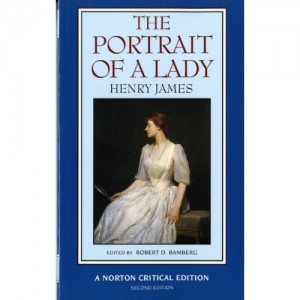 Henry James took novels seriously. He believed that a good novel gave us unique access to depths of experience, and enabled us to explore how individuals work out their destinies in specific times and places.
Henry James took novels seriously. He believed that a good novel gave us unique access to depths of experience, and enabled us to explore how individuals work out their destinies in specific times and places.
This seriousness of purpose has irritated more than one reader of James’ work. Most famously, H.G. Wells said that reading James was like watching “a magnificent but painful hippopotamus resolved at any cost, even at the cost of its dignity, upon picking up a pea that has got into the corner of its den.” Like Proust, Woolf, and Joyce, James can provoke us into asking why it takes more than 20 pages to describe a dinner party or a character walking down the street. It’s possible to get lost in a James sentence, and to wonder what you’re doing in such a long, complex statement anyway.
I keep coming back to James, and periodically getting lost in his sentences and paragraphs, because I always feel that the process of getting lost, and of trying to find my way again, is helping me see things I didn’t before. The process can be time-consuming, and I often find myself with a sheaf of questions after just a few pages. James makes me think, think again, and question what I think I know. As a novelist, his great gift is for opening out everyday experiences and showing us the delicate mechanisms at work within each individual involved in them.
Here, for example, is James describing Isabel’s reactions as she sits in solitude thinking of Mrs. Touchett’s recent visit and how it may alter her life:
“Her imagination was by nature ridiculously active; when the door was not open it jumped out the window. She was not accustomed indeed to keep it behind bolts; and at important moments, when she would have been thankful to make use of her judgement alone, she paid the penalty of having given undue encouragement to the faculty of seeing without judging. At present, with her sense that the note of change had been struck, came gradually a host of images of the things she was leaving behind her. The years and hours of her life came back to her, and for a long time, in a stillness broken only by the ticking of the big bronze clock, she passed them in review.”
And there’s more of this — all of it about what goes on in a young woman’s head as she sits alone and thinks. Look what richness James gives us here: Isabel’s imagination is portrayed an actor in its own right, prone to jumping out the figurative window. Change is a force compelling her to revisit and consider the scenes of her past. And the first hints of Isabel’s weakness — her tendency to see and not judge — are here, the seeds of much that is to come. All the while the big bronze clock clicks, marking both the concrete space of the study and the abstract passage of time.
I’m looking forward to discussing The Portrait of a Lady with Classical Pursuits participants this summer because this novel continues to intrigue and puzzle me, and always rewards the effort of reading it. Sharing ideas with other readers, and discussing those ideas in depth, is a matchless way to deepen understanding, and with James, there are always depths below depths. Navigating them with fellow readers is one of the great literary joys.
For more information and to register, click here.

Latest Updates
Seminars on literature from the ancient world to today
See the world through the eyes of visionary writers and artists
An annual gathering of lifelong learners
Lorna A.
A 2021 participant